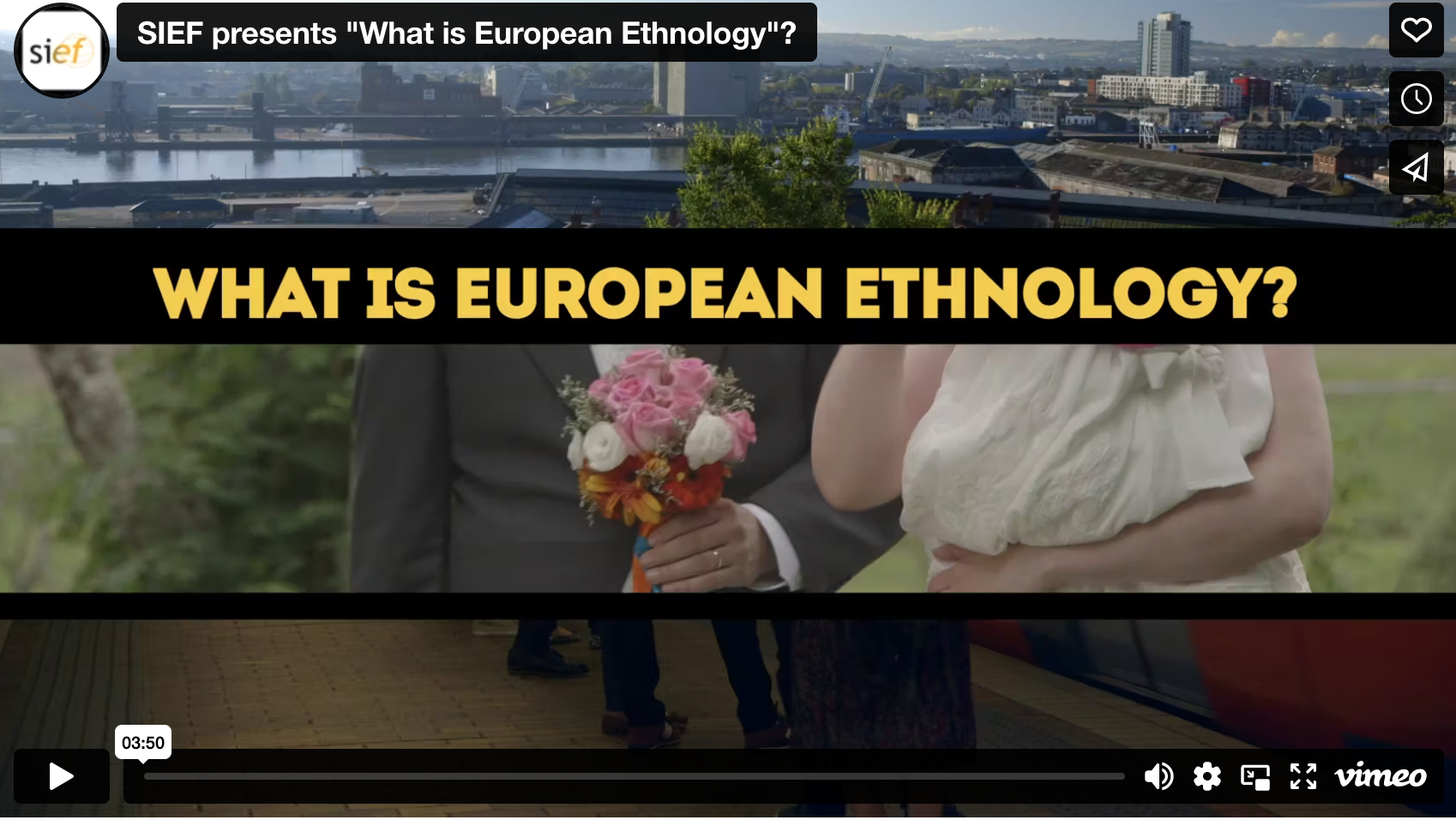
Are you interested in other people, regardless of their origins and world views? Interested in a diversity of cultural expressions in the past and present? Want to know what qualitative empirical research methods are? Want to deal with cultural theories and current theoretical debates, and in doing so also deal with European regions that are less known in this country?
Cultural Studies/European Ethnology (KAEE), also known in German-speaking countries as Volkskunde or Empirical Cultural Studies, studies everyday environments and perceptions of people in European societies in a globally networked world. It uses qualitative empirical methods such as interviews, field research, archival and source work to look at both the present and the past.
Exciting focal points await you here in Mainz: Research and practice-oriented teaching, different subject traditions and a cooperation with the subjects of Film, Theatre and Media Studies (FTMK) that is unique in Germany. We place great emphasis on internationalisation and have a nationwide unparalleled focus on Southeast and Eastern Europe. You can look forward to local and regional teaching research projects. We are also passionate about better working conditions in academia.
If you would like more information about what the subject ‘Cultural Studiesy/European Ethnology’ has to offer and what prerequisites you should have for studying, we will be happy to advise you in person and by appointment by e-mail (Subject Area BA/MA student advising or Study Office). For an initial orientation, please also use the information provided below.
Video: What is Cultural Studies/European Ethnology?
KAEE as a European subject, explained in three and a half minutes – produced by SIEF, the International Society for Ethnology and Folklore.
Information on the Master’s programme M.A. Cultural Studies/European Ethnology
Are you looking to complete a Master’s degree after your Bachelor’s degree? Then find out more here (in German) about the admission requirements, the orientation of the Master’s programme in Cultural Studies/European Ethnology and career opportunities after graduation.
Study! But what? – A podcast by the Central Student Advisory Service
Episode 32: What does one do in Cultural Studies/European Ethnology? (in German)
What actually is culture? Does it only have to do with countries and origins? Isn’t it also culture when people hang locks on bridges as a sign of their eternal love? Or when the masses lie down on the meadows of the parks at the first rays of sunshine, stretch out slacklines and play the guitar? How do people actually shape their lives together? This is one of the central questions that cultural studies deals with. And we talk to Freya about what else lies behind it.
Open Days – get to know specific fields of study
The Open Days (‘Schnuppertage’, a centrally organised offer by the Central Student Advisory Service/ZSB at JGU) are aimed at prospective students who would like to check whether the relevant subject matches their own abilities and inclinations.
The individual programmes of the taster days answer essential questions for choosing a course of study:
- What content does the subject area teach?
- How is the programme structured?
- Which specialisations can be chosen?
- Which prerequisites must be fulfilled?
- What opportunities are there for studying abroad?
- For which occupational fields does the respective study programme qualify?
By taking part in the programme, you will gain an insight into everyday study life and can thus make a more informed study decision on the basis of basic information.
Information on registration and the dates offered for the subject ‘Cultural Studies/European Ethnology’ in the current semester can be found here (in German).
Potential occupational fields in Cultural Studies/European Ethnology
- Press, radio and television
- Museums and exhibitions
- Cultural management and cultural mediation
- Libraries and archives
- Marketing and advertising
- Leisure and tourism industry
- Universities and research institutes (research and teaching)
- Possibility of following up with a Master’s programme or doctorate at JGU Mainz

